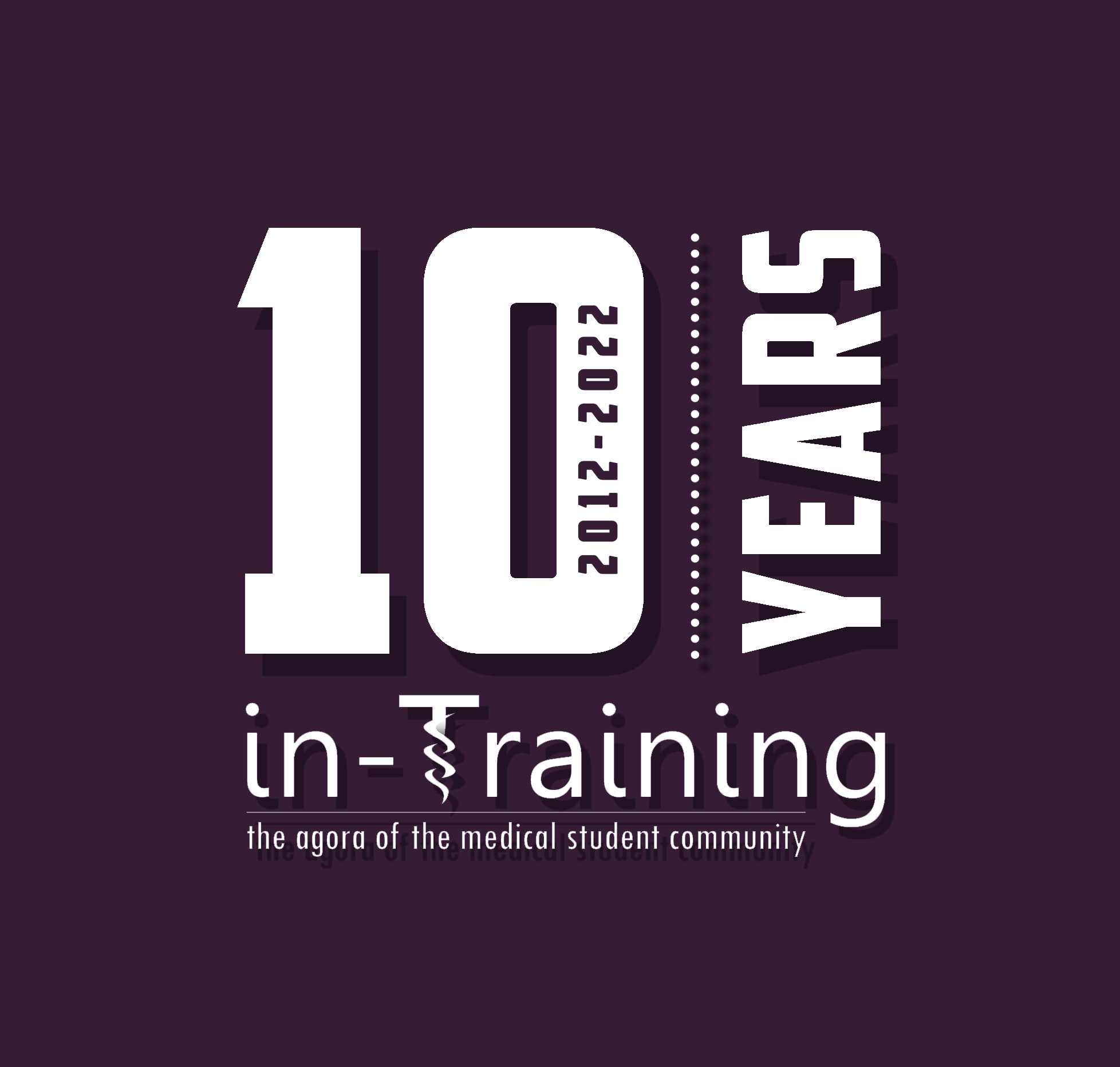This April marked the 10-year anniversary of the founding of in-Training, and we invited all members of the in-Training family to contribute articles and other artistic works to celebrate our first decade as the premier online peer-reviewed publication by and for the medical student community.
Dr. Samuel Rouleau, MD is an emergency medicine resident physician at UC Davis Medical Center and contributes this article as in-Training editor-in-chief emeritus (2020-2021), former managing editor (2019-2020), and curator of our print book in-Training: 2020 In Our Words.
Over the last 10 years, in-Training has published approximately 2,000 pieces, yielding 6.5 million website views. This success is due to a variety of factors, one of which is an inherent design laid out by its founders, Dr. Ajay Major and Dr. Aleena Paul. Specifically, the relative ease of publication compared to that of academic journals encourages medical students to write and share their ideas with early success. Importantly, the decreased structural barriers to publishing contribute to sharing a diverse set of voices. In essence, over the last 10 years in-Training has created an idea space where medical students are encouraged to engage, develop and craft the future of medical education and our conceptions of physicianhood.
in-Training is arguably the most accessible venue for medical students to create and discover reflections, narratives and opinions that come directly from their shared experience. By exposing and encouraging medical students to participate in this crafting and exploration, in-Training is cultivating and promoting the medical humanities.
Simply put, the humanities seek to capture the mosaic of human existence across the chasms of jubilation and despair, life and death, love and fear. The humanities are both disciplines of academic study and modes of expression. These traits of capturing the spectrum of the human condition and the non-duality between study and practice closely parallel the realities of physicianhood. Just as a painter (photographer, writer, poet, musician, singer, actress, etc) studies prior works, understands the history of their field and actively practices their art form, physicians study clinical science, are aware of the impact of history on medical practice and practice the art of medicine daily.
The humanities are integral to the practice of medicine, and every medical student, resident physician and attending should consider a humanities practice. On initial glance, implementing the humanities into a daily routine that is already filled by the demands of medicine is daunting. Personally, my habits of reading and writing have been difficult to maintain throughout the first year of residency, and, I must admit that there have been weeks – months where I have not picked up a book.
Medical students are singularly positioned to develop a humanities practice. In addition to relatively more free time compared to residency, there has been a recent expansion of formal programming for “medical humanities,” which is humanities applied to the realm of medicine. Unfortunately, these formalized programs have not yet extended substantially beyond medical school. And, if they did, the demands of residency may preclude significant participation. While these programs have been vital in increasing the exposure of medical students to the humanities, I do worry that a potential consequence could be the siloing off of humanities from pre-clinical and clinical education and practice.
The purpose and relevance of the humanities for medical students and physicians are for exposure to the range of the human condition and suffering, to enhance and practice empathy and to create a practice of self-reflection. These objectives do not require formal programming to accomplish, and we must ensure that we do not confuse the humanistic practice of medicine with participation in a formalized curriculum.
in-Training plays an essential role in cultivating the medical humanities, and therefore, the practice of humanistic medicine by allowing for informal participation beyond the confines of the medical school curriculum. The practices of reflection and self-expression that define us, our practice of medicine, and our relationships can be supported by formal curriculum, but ultimately must be incorporated into our own lives beyond this type of curriculum. One aspect of in-Training’s legacy is opening an accessible space that touches upon both the professional and personal.

